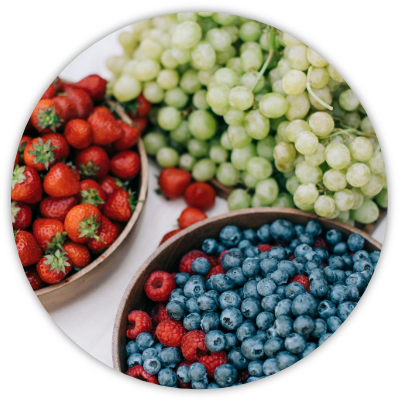Prioritize Your Produce with the Clean 15 and Dirty Dozen
 Want to maximize your health and your produce budget? Every year, the Environmental Working Group (EWG) analyzes government data to create the Clean 15 and Dirty Dozen lists. These lists help you make informed choices about which fruits and vegetables to buy organic.
Want to maximize your health and your produce budget? Every year, the Environmental Working Group (EWG) analyzes government data to create the Clean 15 and Dirty Dozen lists. These lists help you make informed choices about which fruits and vegetables to buy organic.
Making the Most of Your Produce Budget
The Dirty Dozen features the produce with the highest levels of pesticide residue. Focus on buying organic for these items to get the biggest reduction in pesticide exposure. The Clean 15 lists fruits and vegetables with the lowest amounts of pesticides. Even conventionally grown options on this list likely have low pesticide residue, offering peace of mind.
Dirty Dozen (Highest Pesticide Residue)
- Strawberries
- Spinach
- Kale, collard and mustard greens
- Grapes
- Peaches
- Pears
- Nectarines
- Apples
- Bell & Hot Peppers
- Cherries
- Blueberries
- Green Beans
Clean Fifteen (Lowest Pesticide Residue)
- Avocados
- Sweet corn
- Pineapple
- Onions
- Papaya
- Sweet peas (frozen)
- Asparagus
- Honeydew melon
- Kiwi
- Cabbage
- Watermelon
- Mushrooms
- Mangoes
- Sweet potatoes
- Carrots
Beyond the Lists: Eating Smart
- Seasonal and Local: Whenever possible, choose seasonal and local produce. This often means fresher fruits and vegetables with fewer pesticides.
- Grow Your Own Produce: Consider growing your own food or buying from a local farmer's market where you can be more clear about pesticide use.
- Community Supported Agriculture (CSA): Joining a CSA connects you directly with local farms and provides a regular supply of fresh, seasonal produce. You can ask the farmer directly about growing practices and pesticide use.
Why Limit Pesticides?
Pesticides, like glyphosate (Round Up), can have both short-term and long-term health effects. Short-term effects include skin and eye irritation, nausea, weakness and even death in severe cases. Long-term exposure has been linked to cancers, birth defects, and organ damage. Pesticides can disrupt your healthy gut bacteria and irritate your gut lining (leaky gut), resulting in systemic inflammation and chronic disease. Reducing pesticide intake can benefit both your health and the environment.
Taking Charge of Your Produce Choices
The Clean 15 and Dirty Dozen lists are a powerful tool to help you make informed decisions about your produce purchases. By following these tips, you can prioritize your health and maximize the nutritional benefits of your diet.





